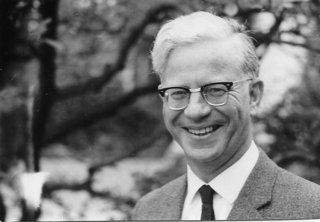Related Research Articles
The Juilliard School is a private performing arts conservatory in New York City. Established in 1905, the school trains about 850 undergraduate and graduate students in dance, drama, and music. It is widely regarded as one of the most elite drama, music, and dance schools in the world.

The Universities and Colleges Admissions Service is a UK-based organisation whose main role is to operate the application process for British universities. It operates as an independent charity, funded by fees charged to applicants and universities, plus advertising income, and was formed in 1992 through the merger of the former university admissions system UCCA and the former polytechnics admissions system PCAS.

Berklee College of Music is a private music college in Boston, Massachusetts. It is the largest independent college of contemporary music in the world. Known for the study of jazz and modern American music, it also offers college-level courses in a wide range of contemporary and historic styles, including rock, hip hop, reggae, salsa, heavy metal and bluegrass. Berklee alumni have won 310 Grammy Awards, more than any other college, and 108 Latin Grammy Awards. Other notable accolades for its alumni include 34 Emmy Awards, 7 Tony Awards, 8 Academy Awards, and 3 Saturn Awards.

Universities UK (UUK) is an advocacy organisation for universities in the United Kingdom. It began life in the early 20th century through informal meetings of vice-chancellors of a number of universities and principals of university colleges and was previously known as the Committee of Vice-Chancellors and Principals of the Universities of the United Kingdom (CVCP). As of July 2022, UUK is led by President Steve West – Vice-Chancellor of the University of the West of England – and Chief Executive Vivienne Stern. UUK is registered charity with an annual income of £13.7 million, which is largely raised from its member institutions.

Inner Mongolia University is a university in Hohhot, Inner Mongolia, under the authority of the Inner Mongolia regional government. It is a member of the Chinese state Double First Class University Plan and former Project 211, and identified as a Double First Class University by Chinese Ministry of Education.

The Central Applications Office (CAO) is the organisation responsible for overseeing undergraduate applications to colleges and universities in the Republic of Ireland.
University admission or college admission is the process through which students enter tertiary education at universities and colleges. Systems vary widely from country to country, and sometimes from institution to institution.

See: Medical Schools in Wales
College application is the process by which individuals apply to gain entry into a college or university. Although specific details vary by country and institution, applications generally require basic background information of the applicant, such as family background, and academic or qualifying exam details such as grade point average in secondary school and standardized testing scores.
Universities Central Council on Admissions (UCCA) provided a clearing house for university applications in the United Kingdom from its formation in 1961 until its merger with PCAS to form UCAS in 1993.
UCAS Teacher Training, formerly the Graduate Teacher Training Registry (GTTR), is the subsidiary of UCAS responsible for student applications from graduates to providers of Initial Teacher Training in the United Kingdom. Applications are filled out online via the UCAS website.
The London School of Jewish Studies is a London-based organisation providing adult educational courses and training to the wider Jewish community. Since 2012 LSJS also offers rabbinical training, returning to its roots.
In the United Kingdom, USR, the Universities Statistical Record consists of records of undergraduate students on courses of one academic year or more; postgraduate students on courses of one academic year or more; academic and related staff holding regular salaried appointments, and finance data for all UK universities. It was compiled by UCCA, the Universities Central Council on Admissions from its formation in 1961 until its merger with PCAS to form UCAS in 1993.

The University of Cambridge is a public collegiate research university in Cambridge, England. Founded in 1209 and granted a royal charter by Henry III in 1231, Cambridge is the world's third oldest surviving university and one of its most prestigious, currently ranked second-best in the world and the best in Europe by QS World University Rankings. Among the university's most notable alumni are 11 Fields Medalists, seven Turing Award winners, 47 heads of state, 14 British prime ministers, 194 Olympic medal-winning athletes, and some of world history's most transformational and iconic figures across disciplines, including Francis Bacon, Lord Byron, Oliver Cromwell, Charles Darwin, Stephen Hawking, John Maynard Keynes, John Milton, Vladimir Nabokov, Jawaharlal Nehru, Isaac Newton, Bertrand Russell, Manmohan Singh, Alan Turing, Ludwig Wittgenstein, and others. Cambridge alumni and faculty have won 121 Nobel Prizes, the most of any university in the world, according to the university.

The National Academy for Gifted and Talented Youth (NAGTY) was based at the University of Warwick and was founded in 2002 by a government (DfES) initiative for high-achieving secondary students in England. It closed in August 2007, after Warwick University decided not to apply for the new contract.
The Polytechnics Central Admissions System was an administrative body handling admissions in England and Wales to most courses at polytechnics and some other higher education institutions for the entry years 1986 to 1992. It ran in parallel to the university admissions system, UCCA, as well as the Central Register and Clearing House, which dealt with teacher-training applications to both polytechnics and specialist teacher training colleges, and ADAR which originally handled art and design course admissions to both polytechnics and specialist art and design colleges. All these admissions systems are now united within the UCAS admissions system.
The Association of Teachers in Colleges and Departments of Education (ATCDE) was an organisation dedicated to the training and education of teachers in the United Kingdom, as well as the representation of members in the negotiation of bargaining issues.
The Art and Design Admissions Registry (ADAR) was a British administrative body concerned with admissions to higher education courses in art and design outside universities. It was founded in 1966 and functioned for thirty years before being absorbed into the Universities and Colleges Admissions Service (UCAS) in 1996. ADAR was based in the city of Hereford.

Ronald Kay was a British University administrator who was instrumental in establishing the Universities Central Council on Admissions, and who was its chief executive until his retirement in 1985.
A report on the formal investigation into student applications at St. George's Hospital Medical School was published in 1988 by the Commission for Racial Equality (CRE), gaining media attention after concluding that London's St. George's Hospital Medical School, with its higher admission rate from ethnic minorities relative to other London medical colleges, used computer software to discriminate against women and people with non-European sounding names, so reducing their chance of being called for interview.
References
- ↑ Association of Teachers in Colleges and Departments of Education (ATCDE), Handbook of Colleges and Departments of Education. Published every two years from 1954 then annually from 1967 to 1992. The edition cited is 1973, p. 17
- ↑ Kay, Ronald, "UCCA: Its Origins and Development 1950-85, UCCA, 1985
- ↑ Sowerbutts, Beryl, Record of the Clearing House 1960-1984, published privately, 1984